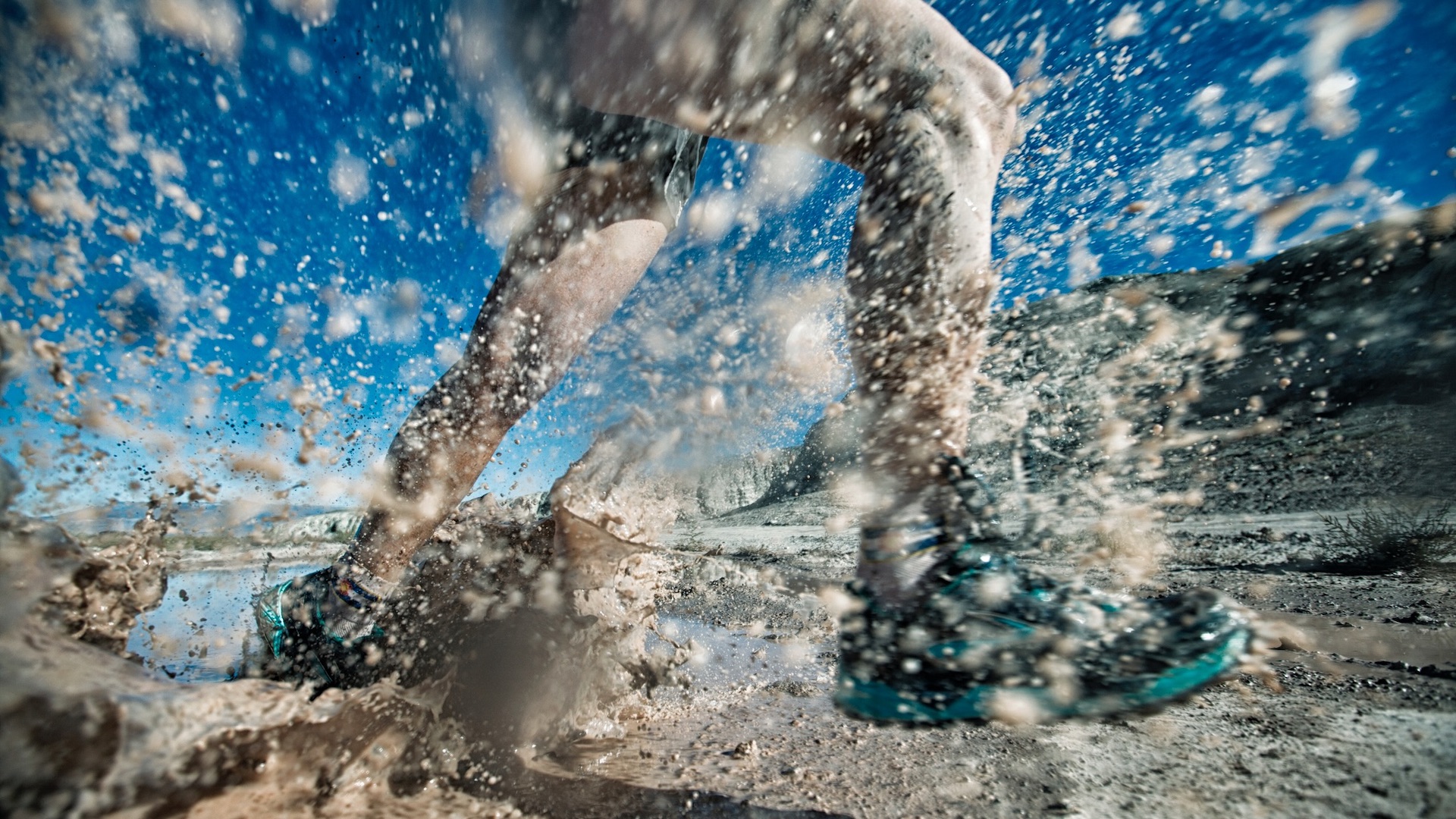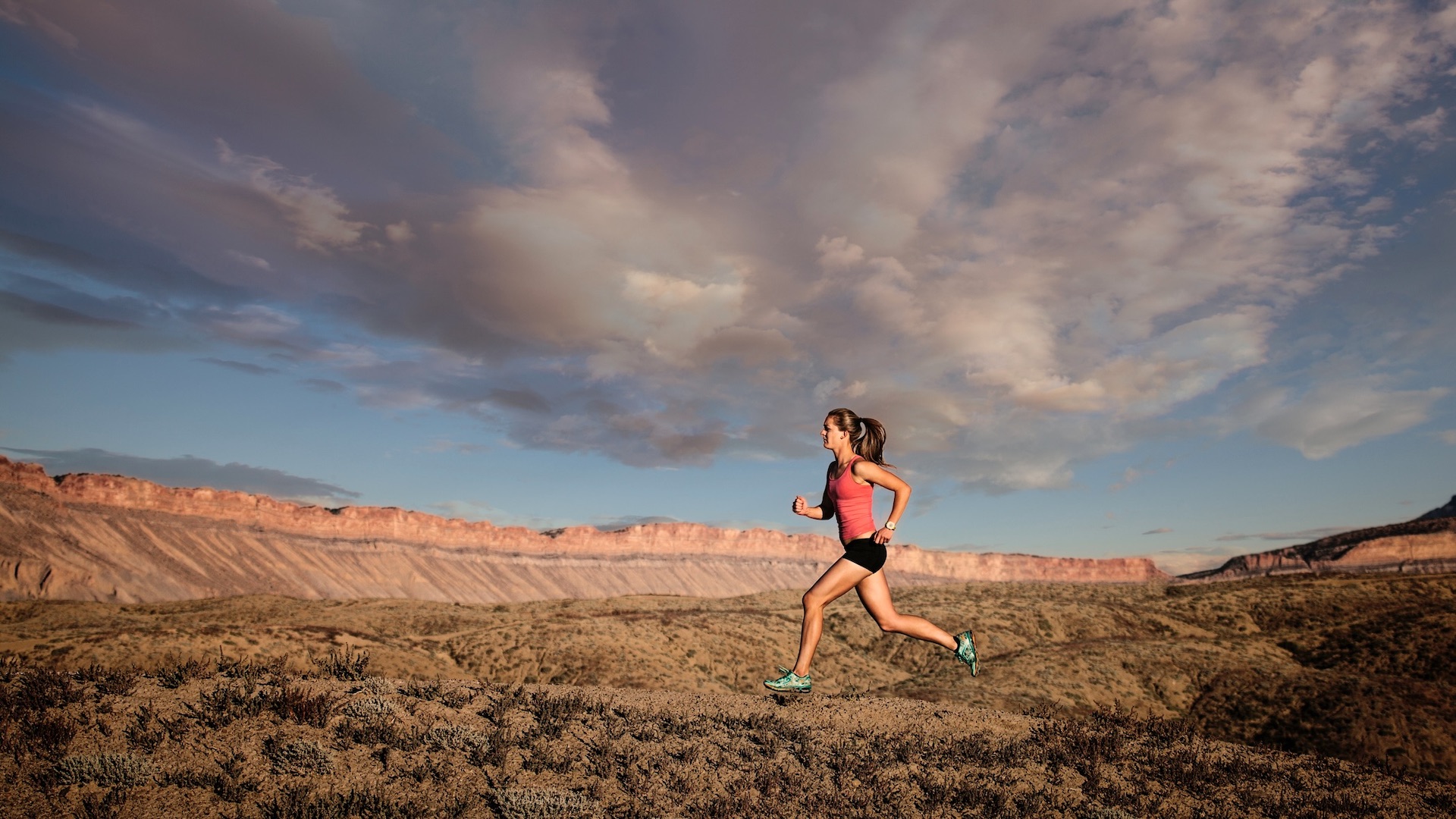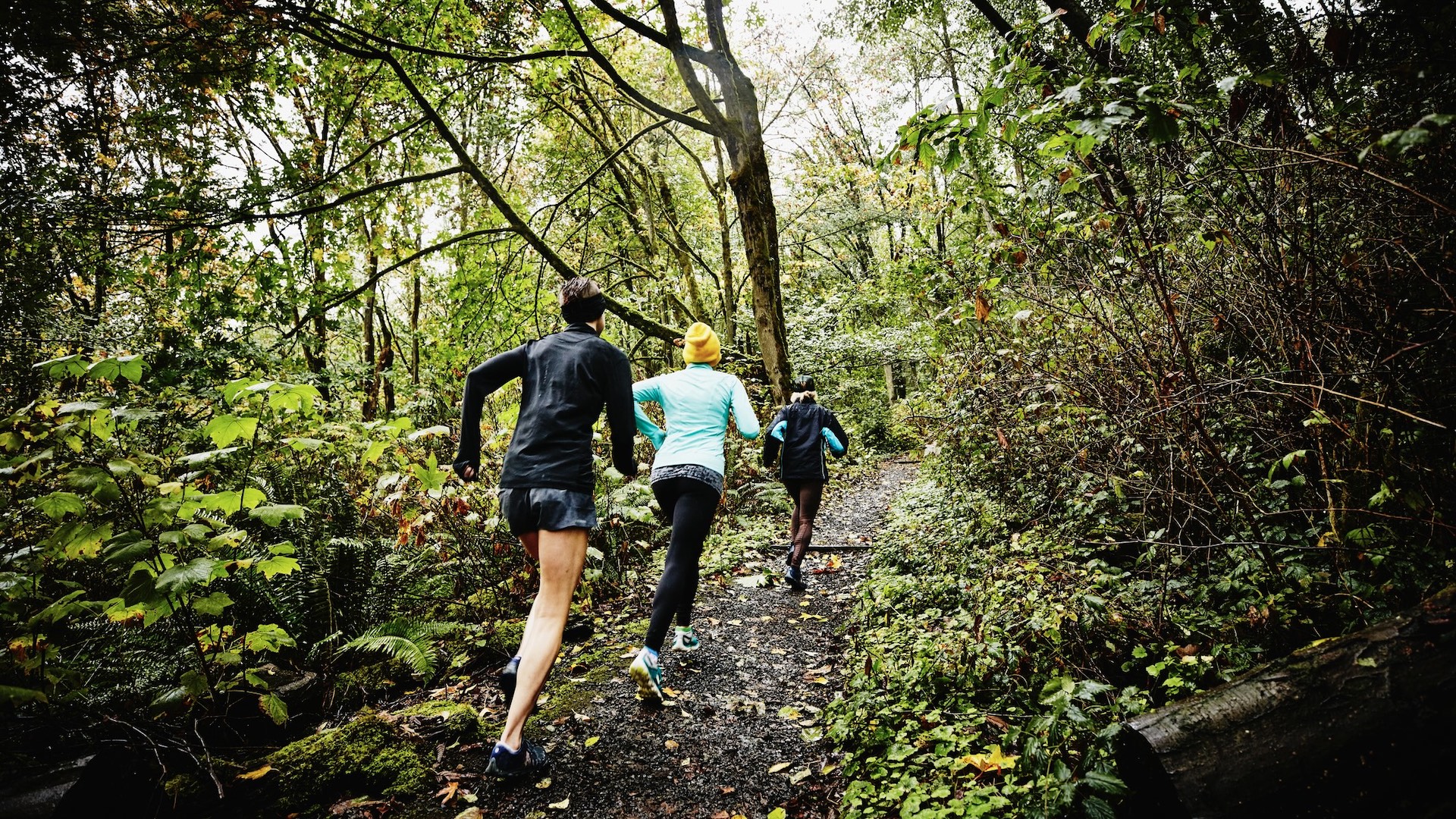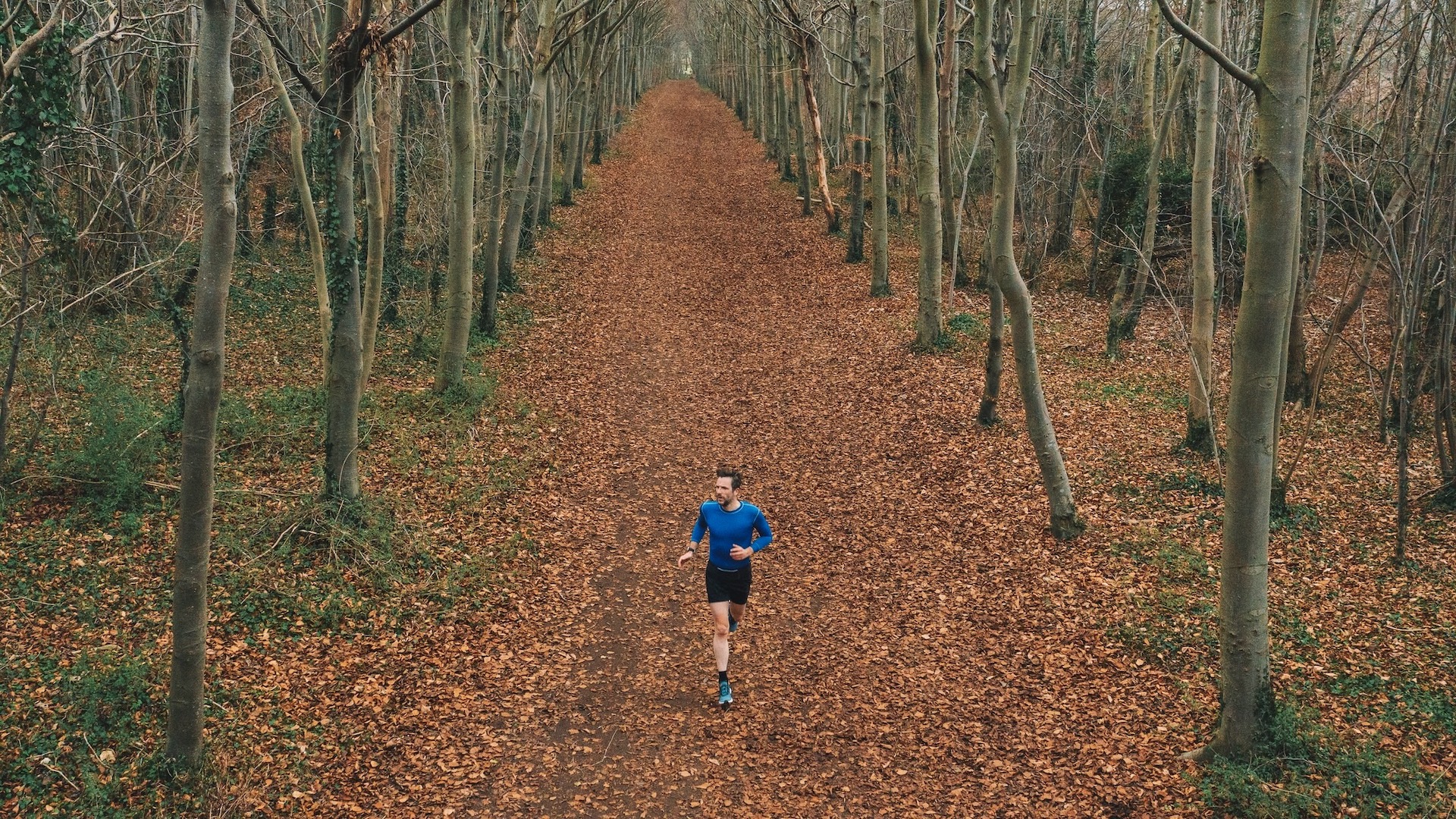
It’s not uncommon to pay well over £100 for a pair of trail running shoes and, in many cases the RRP is at least £150 and closer to £200. The cost of trail running shoes has bee steadily creeping upwards, too.
Yet, trail running shoes wear out quite quickly. It's said you should change shoes between 300 and 500 miles, although we doubt most people do. Plus, trail running footwear usually ends up muddy, wet and looking a bit unkempt. So, it can be tempting to look for budget trail running shoes.
The word “budget” might well refer to a great bargain or a discount and it’s always worth looking for the footwear you most like in the sales. A budget piece could also be found by shopping around for last year’s models. Our tip is to buy a few pairs at once if you find your favourite trail running shoes at a good price.
Budget also refers to products that are, on average, always cheaper than others. There are some brands, for example, those made and sold by Decathlon, Merrell and Asics, that often feature in a more budget-price category compared to pricier options, such as some trail shoes made by Saucony, adidas, inov-8 and The North Face.
In our best buy selection of trail running shoes, prices range from £200 for Saucony Endorphin Edge to £114.95 for Nike Wildhorse 8.
It’s worth noting that many brands offer a range of prices among their trail running shoe collections. It could be that the cheaper models have fewer features or they have cheaper details and components. But, the crucial questions is whether you can rely on budget trail running shoes?

What makes trail running shoes more expensive?
There are many factors that affect the cost of trail running shoes. First there’s the components such as Gore-Tex, for waterproof membranes, soecialised insoles, soles made of Vibram or with Graphene, insoles created with carbon fibre plates and nitrogen-infusions and trail running footwear fitted with winter gaiters or ice spikes, for example.
Research and development plays a part in the price of trail running shoes and models that include are range of updated innovations will likely come with a heftier price tag.
In addition, some brands trade on their reputation for quality or certain shoes that are associated with big name athletes, and these often command higher prices.
Other reasons for more expensive rail running shoes include the cost of employing a workforce and distribution to retailers etc.
Do you even need expensive trail running shoes?
How much you spend on a trail running shoes will often depend on how often you run and where you run. If you are a runner who enjoys shorter outings on hard-packed trails or tracks, the chances are you may not need the same level of sophisticated footwear compared to running on hill and mountain path with lots of rocks, mud and vegetation.
Although, it is worth considering your personal biomechanics and needs. Some runners require a more supportive structure, high quality in-soles and plenty of underfoot cushioning, while other runners seem to be able to run happily in the most basic, pared down footwear.
Likewise, you might actually find that you pay more for a pared down shoe that aims to give you lightweight racing performance. This does seem ironic, that you pay more for less but the design and engineering to create lighter weight products can sometimes be justifiably more expensive.
Trail running shoes packed with modern features, like those graphene grip soles and carbon fibre plates, are also more likely to cost more.
A waterproof membrane, such as Gore-Tex, will add pounds to the cost of the shoes but you won’t need these is you are only running in fine weather or on shorter outings where wet feet are not going too cause comfort or safety issues.
Where more expensive trail running shoes might matter is in situations where safety is paramount, such as when running long distances in the hills and mountains. Being more footsure and having dry and comfortable feet for longer will be vital then.
There is also another factor to consider and that is fit. A trail running shoe that fits, whatever the price, is worth a great deal to a runner because an ill-fitting shoe, however cheap, will cause blisters and injuries and that’s when you are throwing money down the drain because you will end up having to bin or sell the shoes secondhand.

Different trail running shoes for different occasions
If you are a keen trail runner, the chances are you enjoy different types of trail runs. Some of these might be on hard-packed trails and easy-going footpaths, while others might be more committing and on rougher and more rugged paths in the hills and mountains.
It could be the you have a more budget-friendly pair of trail running shoes for shorter runs where it is less likely you will lose your footing. Likewise, you might choose to have reduced features, such as less cushioning, support and grip, in these shoes.
A glance at the best road to trail running footwear 2023 guide shows that shoes that do not need to work as hard – that is, they do not need the most grippy soles or the highest amounts of cushioning – are generally cheaper. The selection all have an RRP of £160 or less and several around the £115 to £120 mark.
Then you could also have a second pair of trail running shoes for other trail running adventures that are more priced more mid-range or upper-range. Running in the hills and mountains could demand extra features such as good grip, waterproofing and uppers that resist abrasions form vegetation and rocks. For ultra runners, a trail shoe with extra cushioning could well be a must-have.
Which brands can you recommend for budget trail running shoes?
Across most brands, there is a range of prices for trail shoes so it is difficult to recommend a solely budget brand. However, Decathlon is well known for selling products at a more budget friendly price. Their most popular trail running shoes are all priced at less than £90 and, in many cases, further discounted.
Other brands, such as adidas, Dynafit, Merrell and Salomon, have trail shoes for £120 or under in our best buy section for 2023.
A glance at popular sports shoe retailers reveals plenty of discounted options on last season’s models or in less popular sizes. You could also consider the more environmentally friendly option of buying trail running shoes second-hand, although it is wise to do this only if the shoes have been worn a few times. Buying well worn footwear can lead to biomechanical instability and other issues.

The psychology of budget trail shoes
There are runners who feel more confident wearing footwear that they consider to be made by well-known brands. Other runners like to wear the latest trends in running shoes, or those that have been worn by an elite runner to win a marathon. It makes them feel better psychologically to wear a more expensive branded shoe.
Then again, there are runners who also gain a mental boost from knowing they are running in a basic pair of budget footwear, yet still staying ahead of other runners, because it should be more about the runner and commitment to training and less about the shoe you wear.
More tips for buying budget trail running shoes
The sales and last season’s models could provide a good source of more budget-friendly prices.
If you already know that a brand fits you, it’s worth having a look at the budget end of the shoe range to see if there are models that would suit you for shorter, everyday runs.
Choose less popular colours such as white. We have no idea why a company would make white or light coloured trail running shoes but there are some that do and these might well end up in the sales or cut to more budget friendly prices.







